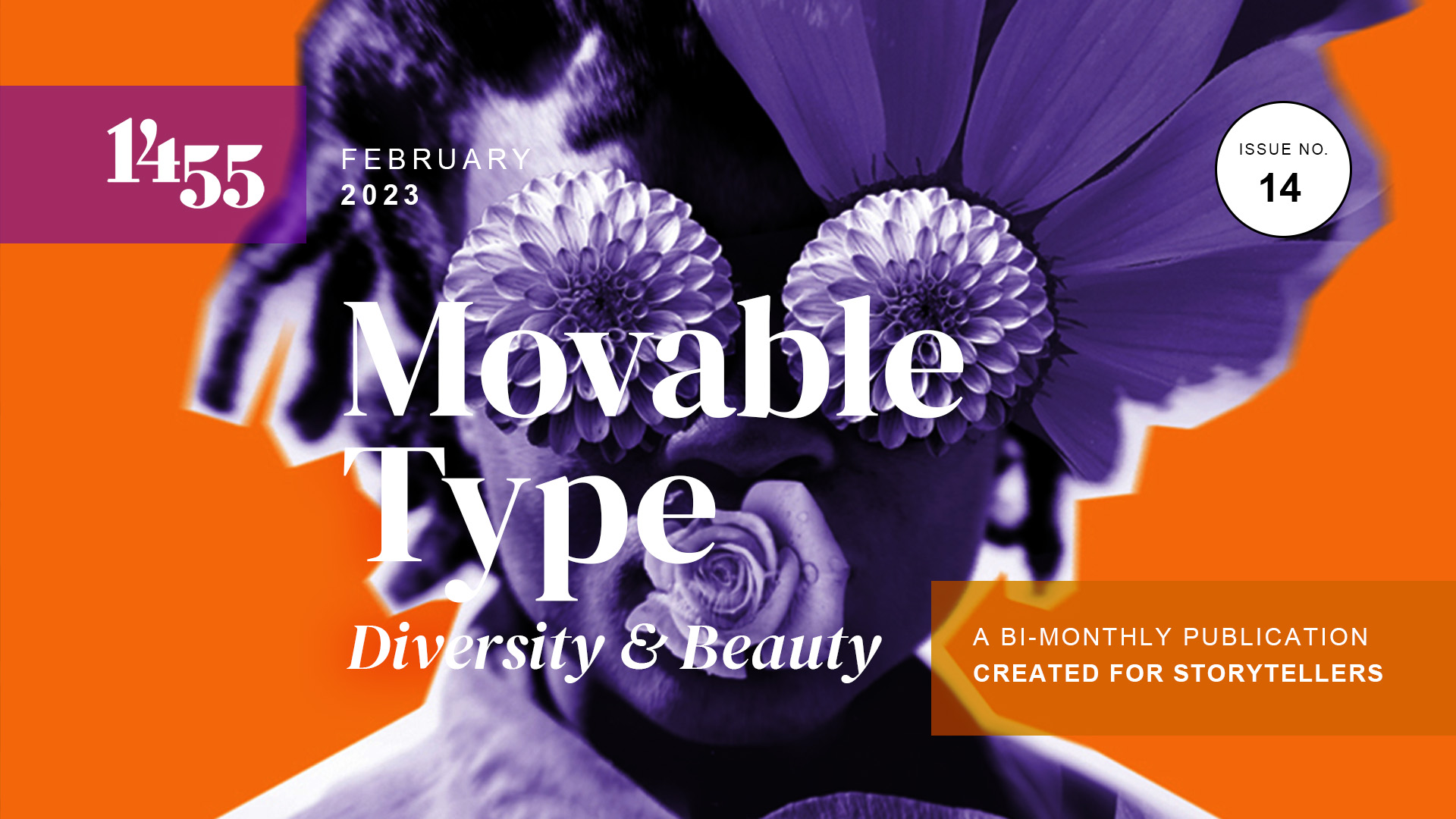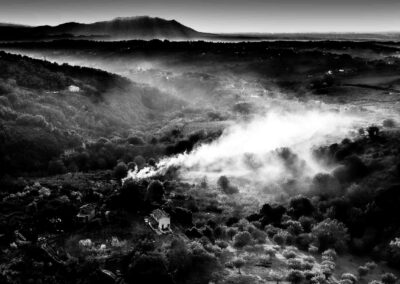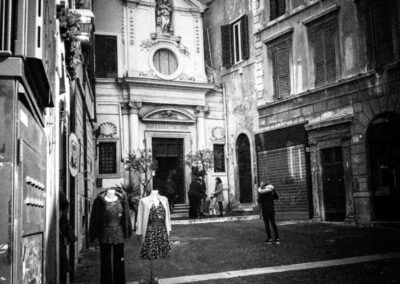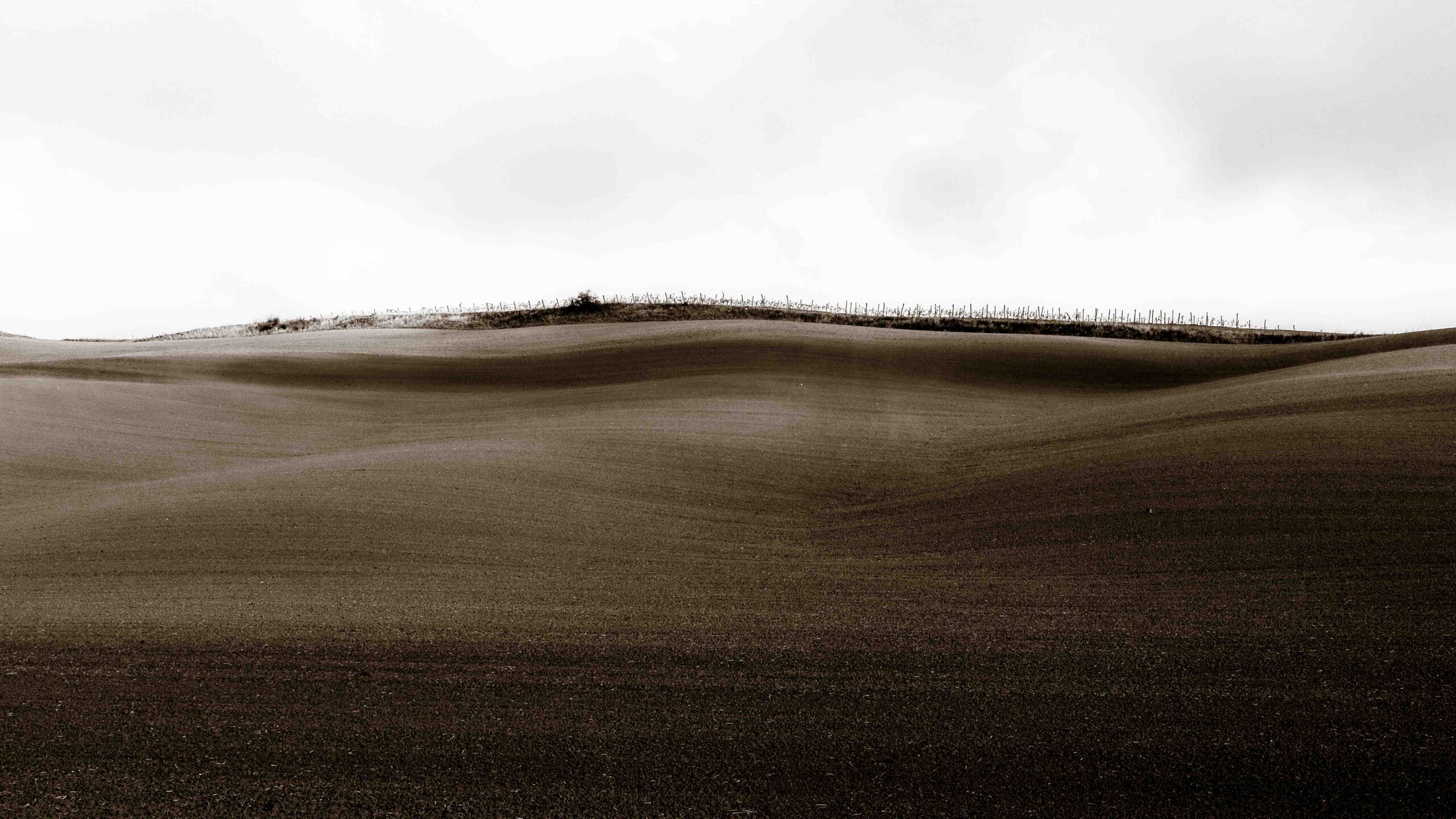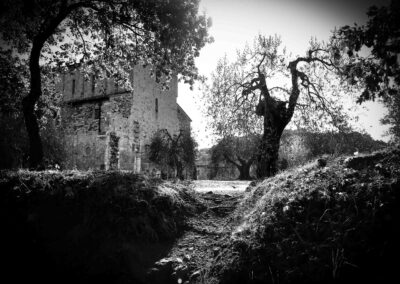JUSTEN AHREN
Awakening Landscapes: Italy and Devotion
If absolute human attention is a form of prayer, as Simone Weil said, then all of us have prayed into some place—a private room, an orchard, a well. In these places we feel We Are. Maybe we were born there. Maybe we traveled our entire lives to arrive—writing ourselves, searching, living towards a place where we are. We are travelers.
And we travel not only to experience beauty, or culture, or to amplify our senses, but to discover and to be discovered. And what we discover ‘out there’ often is a new landscape within ourselves. In this way, travel, like writing, like art, requires us to depart. Depart from where? From the known, our narrative; comfort, our blindness. We travel not merely to move, but to move beyond.
There are places we find that open us, expand us like no others. Places we feel Us. Through us place, and all that upswells through place is expressed, too. We, because we love (love being the most powerful form of attention), express the place, shape it, and are shaped by it. We keep departing, only to return, to be brought back, to this, for this.
Italy is, for me, this place. It lives, labors, acts, creates in me, through me, of me. I live, labor, act, create in, through and from it. We hallow together. Call it Home where we feel ourselves authentic, and which we authenticate. Home is where things are born.
Something in the Italian landscape dis-covered me. Something Italy needed me to dis-cover. At various, necessary, inevitable times in my life, Italy awakened (in) me, and drew from me, new forms. Italy traveled me, furthered me. Is it odd to speak of a place as an actor? So be it. Land moves me; soil is power.
Buried in our English word travel is its root, travail, painful or laborious effort; struggle. The inherent, historical danger survives. To move through foreign landscapes has always been dangerous. Without protection, of our own volition, we go. For all human history, travel exposed us—to hostile others, storms, wilderness. Departure was, and still is, risk. And herein lies the opportunity for (re)birth.
Travel has always taken me apart. Three times Italy took me apart and put me back, anew. This is what I want when I travel. What I want to ask you is this: how aware are we of our unfolding journeys?
When I travel I remember: I’m alive. Like when I write, create, and play I remember–life is joy, also terror, also awe. I remember I am Attention. Of me, through me, with me, life makes. Place is the appearance, in time and space, of that which we give our attention. To realize this momentarily is to arrive: Here, Now.
Maybe place seeks us, so it, too, can–we (all) can–speak. Here, Now, Presence. For Here is the only place we truly can ever be, arranged as we are, just so.
It’s taken me all this time to say, Italy makes me present. Italy is my place of renaissance. Birth and rebirth through me, of me, with me. We travail.
First, a breaking of silence: poetry.
August 9, 1991. I was abroad for the first time. I was alone. I gathered pine nuts, beneath pine trees on a hill, facing east, an old town, Tarano, serrated mountains. Smoke from a fire I made the previous night hung in the valley. A cat lapped rain from a dish. Above the door of a ruined house, a name carved in stone: Cleondra, 1881.
In the soil of my grandfathers, I felt familiar. Tastes, smells, a morning rain, in my cells I remembered, everywhere began to sing. Then, everything fit. Here, Now. And from the upswelling, I did what I’d never done: I wrote poetry. With poetry I plowed. I turned fields.
I began, and an abundance I’d never known poured in. I wanted to share this gift.
Second, Seeking Light.
Abundance is the gift of life. I married, raised a family, built a house, a business, published a book. Twenty years I traveled fatherhood, manhood. And when my daughter graduated, I grieved the end. Italy called. I’d not been in twenty years. It called me at this time when everything appeared to me black and white. Ending. Shadow. Thin figures walked the horizon, a tree line. Everyday my daughter was closer to leaving. Everyday reports of refugees walking to Europe. Freezing, through countries hostile to them they came. Travail.
It was October, when I arrived in Rome. I wasn’t sure why I’d come, or what I could do.
I went into a church near Piazza Navona, San Luigi dei Francesi, to see some paintings by Caravaggio a friend of mine suggested I see. The tar-dark canvases hung in a side chapel.
They nearly fell into the dark of the dark church. The people in the paintings from the life of St. Matthew, also seemed to me to be struggling to keep from being swallowed by the darkness at the corners of the paintings, the night from which they were hatched, born. And yet, each person was held by a powerful light, a single source comeing through the window, or from an angel. Sunlight, divine light. Light which all living things seek.
I’d been seeing, feeling within, something akin to the dark and light Caravaggio captured. In Italian, the word for room is camera. Our English word camera, a device that allows light into a room to impress an image on film, or a sensor, is taken from the Italian.
We, too, are rooms, cameras. Our eyes are windows, apertures through which light enters the dark. I, also, had a camera—the device—with me. I thought, I will be a camera. When I stepped out on the street in Rome, I saw light landed on each leaf, stone, bike seat, cheek. Light. And the play of shadows. How had I not noticed light before, touching everything, breaking everything from its shell of darkness?
Rejoice: light flooded. I shuttered, rejoice. Unblinded, f/stopped. I was a camera. With words, I don’t have a less strenuous way say: how much light can I allow in?
For the next few years, I traveled to Italy, as well as other European countries visually documenting refugee routes and what impressions their risking left in the landscape.
Third, Devotion is a ‘coming to love’.
During one trip, near Rieti, I met a group of artists who called themselves Art Monks. They devoted themselves to art as religious monks devoted themselves to God: through a daily practice, prayer, surrender, and gratitude, they were cultivating a relationship to Creation and communing with the Ineffable, Muses, Source, God, or whatever name one has for that which is beyond us.
I visited the Art Monks in their workshop and performance space, a former monastery overlooking the Rieti valley. Together we practiced writing, singing, painting. Like praying. I’d written daily for years, but my time in Rieti awakened in me a desire to work with writers and artists to help facilitate their creative expression and devotion. Within a year, I started a literary arts center in Martha’s Vineyard, where I live, and I returned to Italy to hold the first Devotion to Writing workshop.
We all have a site of renaissance and some of us have been fortunate to find this place that shines through us, and which shines us. A place where we dream, that dreams. A place which opens us so the ineffable can step through, enter form, be reborn to the world, and so renew it.

Justen Ahren
Justen Ahren is a photographer, poet, and teacher. He leads Devotion to Writing workshops all over the world. The next Devotion to Writing Retreat in Italy is November 15-21, 2023 in Orvieto.
Website: devotiontowriting.com
Instagram: @justenahren
LinkedIn: linkedin.com/in/justen-ahren-5919723b
Facebook: facebook.com/justen.ahren

